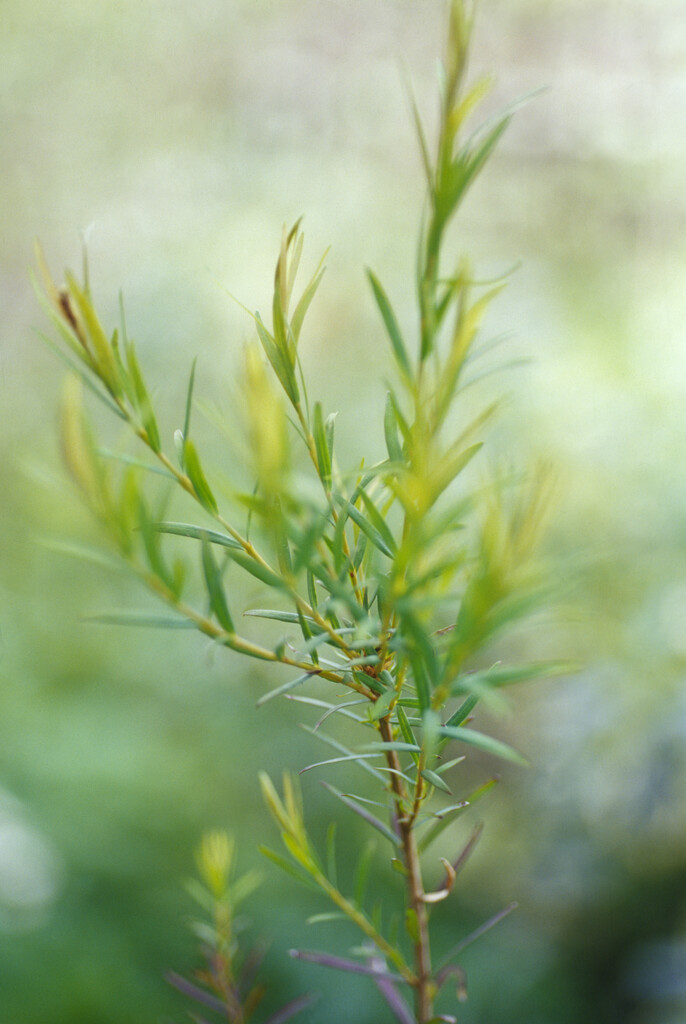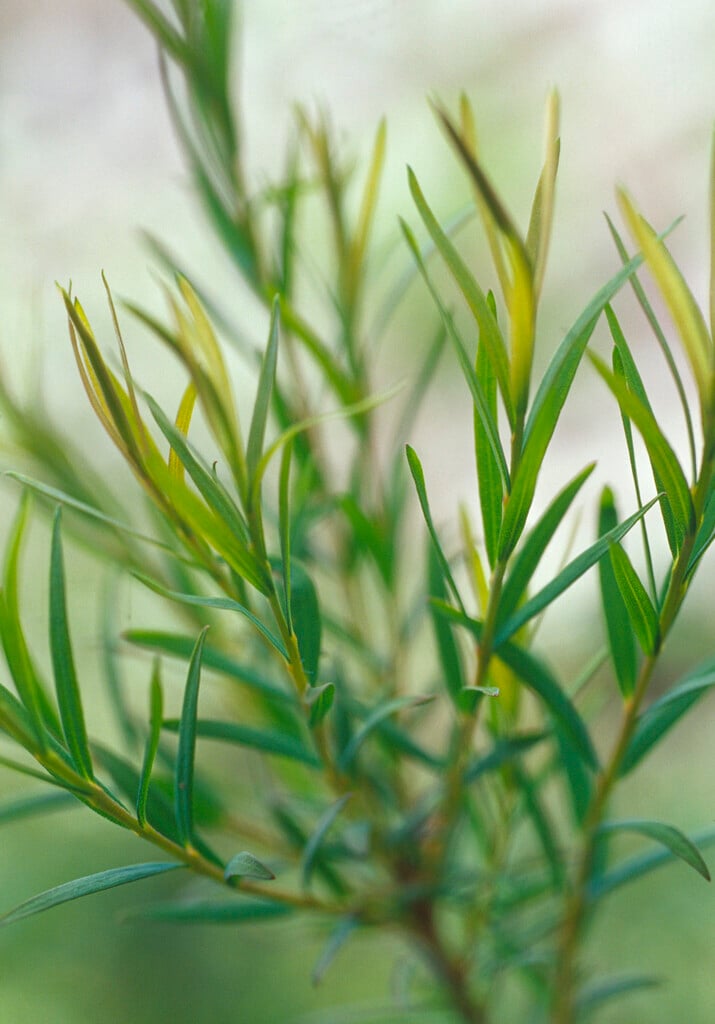Melaleuca alternifolia
An evergreen shrub or tree, to 6m in its native Australia, with papery, grey-white bark and smooth, linear, needle-like leaves to 3cm long, scattered irregularly or whorled along the stems. The leaves are the source of tea tree oil. In summer it produces small white flowers, held in dense spikes that resemble a bottle-brush; these are followed by small, woody, cup-shaped fruits
Size
Ultimate height
1.5–2.5 metresTime to ultimate height
10–20 yearsUltimate spread
1–1.5 metresGrowing conditions
Moisture
Moist but well–drainedpH
Acid, Alkaline, NeutralColour & scent
| Stem | Flower | Foliage | Fruit | |
| Spring | Green | |||
|---|---|---|---|---|
| Summer | White | Green | ||
| Autumn | Green | |||
| Winter | Green |
Position
- Full sun
Aspect
East–facing or South–facing or West–facing
Exposure
Sheltered Hardiness
H2Botanical details
- Family
- Myrtaceae
- Native to GB / Ireland
- No
- Foliage
- Evergreen
- Habit
- Bushy
- Genus
Commonly known as 'tea-tree', this is a genus of nearly 300 species of paper barks, honey myrtles or tea trees, endemic to Australia where they can be found near streams and swamps. These small trees have white, papery bark and soft, smooth oily leaves. Flowers are white and brush-like
- Name status
Correct
- Plant range
- Australia (S.E. Queensland, New South Wales)
How to grow
Cultivation
Under glass, grow in peat-free, loam-based potting compost with added leaf mould, in full light with shade from hot sun. Water moderately while in growth and apply a balanced liquid fertiliser monthly; water sparingly in winter
Propagation
Propagate by sowing seed in spring, or root semi-ripe cuttings with bottom heat in summer
Suggested planting locations and garden types
- Mediterranean climate plants
- Patio and container plants
- Conservatory and greenhouse
Pruning
See pruning group 1; plants under glass may need restrictive pruning after flowering
Pests
May be susceptible to glasshouse red spider mite and scale insects
Diseases
Generally disease-free
Love gardening
Sign up to receive regular gardening tips, inspiration, offers and more
View our Privacy Policy
Get involved
The Royal Horticultural Society is the UK’s leading gardening charity. We aim to enrich everyone’s life through plants, and make the UK a greener and more beautiful place.

